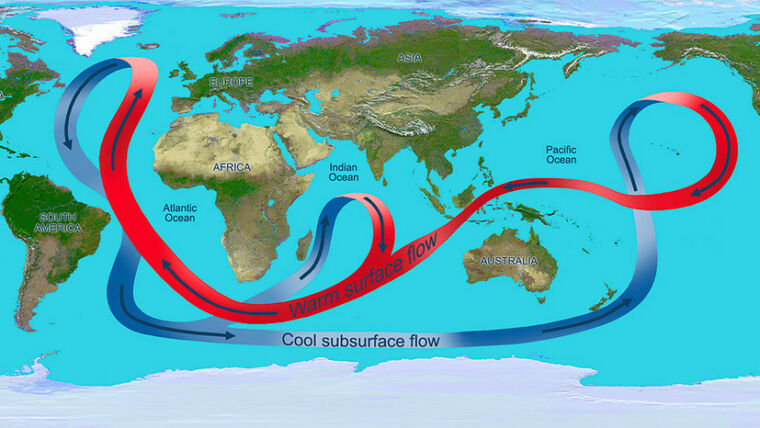Day to day, we all live our lives. For many of us, we blissfully go about our daily routines ignorant of so much that goes on that doesn’t affect us. Or, if we are not ignorant of something, we simply acknowledge it and keep on keeping on. Sometimes, we choose to just not worry about things that don’t affect our personal daily lives. As is said, ignorance is bliss.
On occasion I think about the security briefing that the President gets daily. From what I’ve heard, the dangers that lurk “out there” would raise the hair on the back of our necks and scare the bejesus out of us if we were to know what is contained therein. Fortunately, our intelligence and security resources keep most of these scary things from impacting our daily lives.
My point is that there are a large number and wide array of things going on every day that if we were to know about would really scare us. I’m going to reveal a couple of these first before turning to some information about transportation and specifically the automotive industry.
Over the past decade or so, I have written about “climate refugees”. Here’s a link to one from 2019.
Here’s a quote from it.
“This is the sharp edge of the climate crisis. What seems an urgent but still future problem for many developed countries is already killing people in parts of Asia, and a new refugee crisis, far worse than that which has hit Europe in recent years, is brewing.”
Well, these next two articles will show that it’s not just heat and droughts that are driving migration and it’s happening in the United States now. And they reiterate what I have also been reporting on regarding climate change impacting insurance rates and coverage and real estate values.
From E&E News
Millions of Americans to Flee Climate Dangers in 2025 — Report
Perils from rising temperatures are pushing people out of their homes and upending the real estate market, according to climate modeling firm First Street.
02/03/2025
“Climate change is transforming the U.S. housing market,” the report says.
The residential market, now valued at roughly $50 trillion, could lose $1.5 trillion in value by 2055.
More than 5 million U.S. residents are expected to move away from areas being affected by climate change in 2025, according to a report released Monday.
“Climate change is no longer a theoretical concern,” Jeremy Porter, head of climate implications research at First Street, said in a statement. “It is a measurable force reshaping real estate markets and regional economies across the United States.”

From Associated Press
Rochester Draws Residents Fleeing Extreme
Weather
New York’s Rochester and Buffalo and Minnesota’s Duluth don’t face hurricanes or storm surges. They are also connected to large freshwater lakes.
05/15/2025
Climate will increasingly be a factor driving migration…Each year, natural disasters force more than 21 million people from their homes, according to the U.N. High Commissioner for Refugees.

From E&E News
Disasters Displaced a Record Number of People Last Year
About 11 million U.S. residents had to relocate to another part of the country in 2024.
05/13/2025
Natural disasters and human conflict forced about 66 million people to flee within their own countries last year, and the United States led all nations with 11 million of these internal displacements, new research finds.
That’s a record for the United States. And last year broke a global record, too, as 2024 saw the largest number of disaster-related internal displacements since experts began tracking the issue in 2008. About 46 million people worldwide had to relocate domestically last year because of natural disasters; another 20 million had to flee because of conflict or violence.
The 46 million people forced to relocate domestically because of natural disasters last year represents a big jump from 2023, which saw 26 million people internally displaced because of events such as storms, floods, wildfires and droughts. In the United States, natural disasters were the sole reason 11 million residents had to relocate domestically.

And while this next article is not directly about climate migration, it is about an insidious occurrence that is happening more and more frequently as flooding gets worse even here in Highland Park when we get torrential rain in a very short time. Neighborhoods flood. You might very well be vulnerable yourself so better check your insurance. There are a lot of people in North Carolina that never imagined that their property could flood which turned out to be at their great peril.
From Bloomberg
When a Neighborhood Floods, Foreclosures Often Follow
A big part of the reason why is that unlike damage from hurricane winds and wildfires, flood damage isn’t covered by standard home insurance.
05/20/2025
The widespread lack of flood insurance could adversely impact credit markets in the form of higher-than-anticipated loan failures.
Using 2012’s Hurricane Sandy as a case study, the analysts found that damaged homes were more likely to be foreclosed on. Hundreds more defaults than expected meant $68 million in unanticipated loan write-offs.
While this next article is about Europe, this is happening in the US as well (as I’ve written about in the past) and is along the same lines about something you probably don’t think about but is happening and is dangerous especially to those who live in the South full time, part time or simply visit there.
Associated Press
Dengue Cases Set Record in the Americas this Year
Cases of dengue have surged globally as warmer weather brought on by climate change enables mosquitoes to expand their reach. Deaths from the disease are also rising.
12/11/2024
Dengue fever is sweeping across the Caribbean and the Americas, with a record 12.6 million suspected cases of the mosquito-transmitted virus reported this year, nearly triple the number from last year, health officials said Tuesday.

From E&E News
Dengue, Chikungunya Risk Becoming Endemic in Europe as Mosquitoes Head North
Climate change is driving outbreaks of tropical diseases across the continent.
05/16/2025
Nearly half the global population is now at risk of contracting dengue and chikungunya, which were once limited to the tropics, due to the warming planet. Both viruses, transmitted by mosquitoes, can occasionally be fatal. The symptoms include a high fever, headache, body aches, nausea and rash.
In summary, climate change is already causing millions of people to leave their homes and move to areas they perceive to be less vulnerable to the consequences of climate change. In the process, real estate values are being impacted in both directions. Down where property is in areas prone to disasters caused by climate change. And up as demand goes up for properties that are in areas perceived to be more safe. Insurance costs are being affected as well. And if you live in more southern climates, diseases spread by mosquitoes that are usually confined to areas further south and silently coming further north.
It is easy to miss what is happening in this regard but it IS nevertheless occurring and may eventually impact YOU if it hasn’t yet already.
Turning to the automotive industry there’s another development that is occurring to which many people are oblivious and which our new Administration is going to exacerbate. The Chinese are making huge advances in EV technology at a time when our government is trying to roll back incentives for EV purchases and technology development. If this continues, while tariffs may keep Chinese cars out of the US they will only destroy the market for American vehicles totally non competitive in the rest of the world.
From The Automotive News
Carmakers Can’t Afford R&D Cuts in Tough Times
May 12, 2025
there is a giant wolf lurking at the door… in the form of Chinese automakers.
If global automakers pull back on research into electrification and driver assistance technologies, for example, as a strategy for short-term financial gain, they are likely to lose any technological advantage they may now hold if and when Chinese vehicles arrive in the market.
From The Washington Post
Trump is trashing electric vehicles. China is building cars the world wants.
China dominates global EV sales, while U.S. consumers risk getting stuck on an island of outdated technology.
April 25, 2025
We are all going to EVs globally. It is just a question of when,” said Ellen Hughes-Cromwick, a former chief global economist at Ford.
drivers eagerly buying up reliable EVs with sticker prices as low as $20,000 from red-hot Chinese EV makers like BYD, short for “Build Your Dreams.” Last month, BYD announced it had fulfilled a dream of many motorists by unveiling electric cars that could be fully charged in five minutes.
The starting price of the new fast-charging BYD cars sold in China is under $28,600, more than 10 percent cheaper than a Tesla Model 3 there.

Well, you get my point. China is leaving the rest of the world in the rear view mirror when it comes to EVs. High quality, extremely fast charging and lower prices. And Trump wants to destroy the US EV manufacturer. We’re getting left in the dust…



